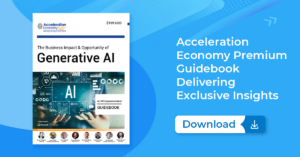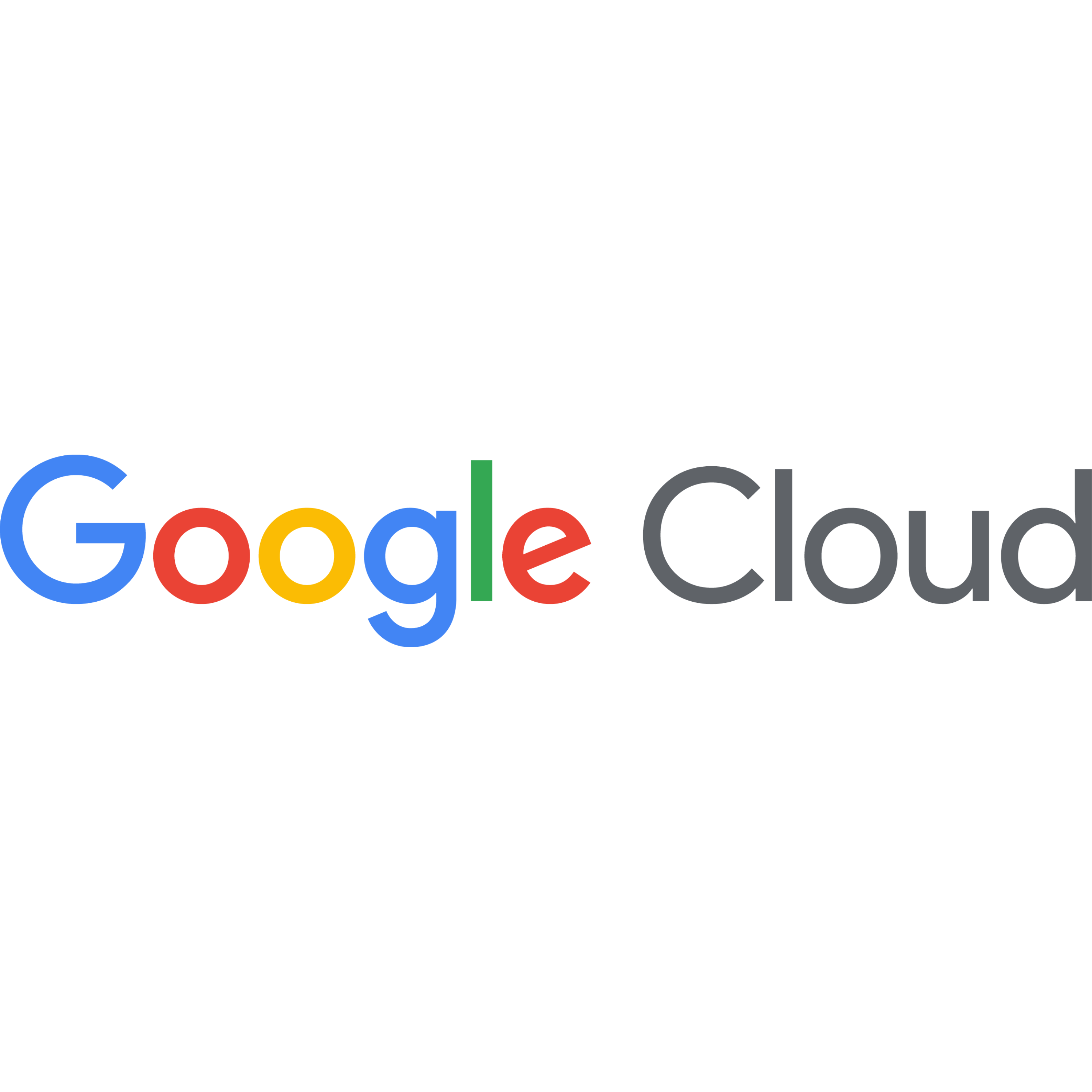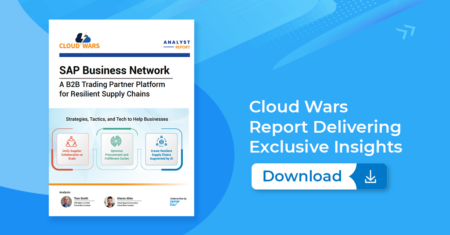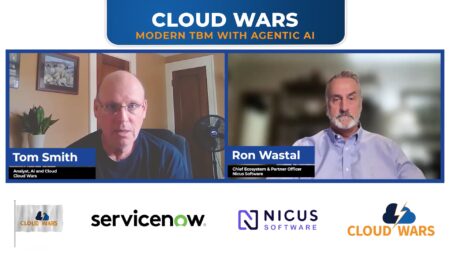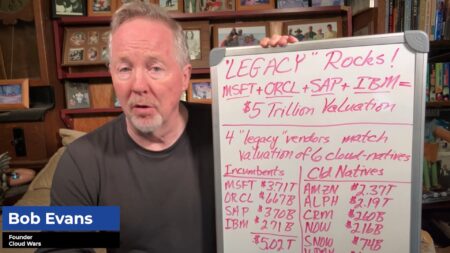
The rapid adoption of artificial intelligence (AI) by business, tech, data, and developer teams is staggering. In fact, 34% of app developers are using AI, up from just 3% in 2020, signaling the large volume of AI work going on right now. And investments in AI research and applications are set to hit $500 billion by 2024, according to research firm IDC.
Acceleration Economy has been chronicling and breaking down the “why” and “how” of AI’s impact on customer experience from every angle.
For inspiration and perspective, I’ve pulled together recent examples of AI-powered applications deployed around the customer — what every company touts as the center of their business. In this article, I’ll break down AI customer applications from three views:
- How enterprises are utilizing AI to reimagine and uplevel customer experiences.
- How industry-specific clouds use AI to help companies find, serve, and dazzle customers.
- How partnerships and partners ecosystems are creating market-ready AI products.
In all cases, breakthrough work is happening through partnerships whereby enterprises, tech vendors, and specialty partners use AI to co-create products and services, an approach that reduces time to market and increases impact by tapping into specific areas of expertise.
Gain insight into the way Bob Evans builds and updates the Cloud Wars Top 10 ranking, as well as how C-suite executives use the list to inform strategic cloud purchase decisions. That’s available exclusively through the Acceleration Economy Cloud Wars Top 10 Course.
Enterprise Business Use Case: Mercedes Benz-Microsoft
Mercedes Goes All-In On AI to Bolster its Luxury Brand Experience
Mercedes Benz AG has publicly committed to leveraging AI across its entire business to drive innovation. In June, the renowned luxury automaker expanded its utilization of AI by introducing ChatGPT with voice control powered by the “Hey Mercedes” MBUX Voice. Mercedes-Benz has combined the strengths of both technologies, integrating the reliable data of the MBUX Voice Assistant with the natural conversational capabilities of ChatGPT. As a result, customers can now interact with a voice assistant that understands natural commands and engages in conversations.
Using a large language model (LLM), ChatGPT significantly enhances natural language understanding and broadens the range of topics it can respond to. Mercedes-Benz has integrated ChatGPT into its operations through Microsoft Azure OpenAI Service, using Microsoft’s cloud and AI platform with enterprise-grade capabilities. Cloud Wars founder Bob Evans highlights customer interest in Microsoft‘s strong generative AI product lineup as a key revenue driver for the company, which sits atop the Cloud Wars Top 10 ranking.
Leveraging Azure OpenAI Service enables Mercedes-Benz to tap into OpenAI’s extensive generative AI models while benefiting from Azure’s security, privacy, and reliability features. Importantly, Mercedes-Benz maintains full control over its underlying IT processes. The voice command data collected is stored in the Mercedes-Benz Intelligent Cloud, anonymized, and analyzed for insights.
This feature is now available in over 900,000 vehicles equipped with the MBUX infotainment system.
Markus Schäfer, member of the Board of Management of Mercedes-Benz Group AG, chief technology officer, development and procurement, said in a statement: “The integration of ChatGPT with Microsoft in our controlled cloud environment is a milestone on our way to making our cars the center of our customers’ digital lives. This way, we aim to support conversations with natural dialogues and follow-up questions. Everything is under one big goal: Redefining the relationship with your Mercedes.”
Industry Cloud Use Case: Salesforce
Ulta Beauty Taps Salesforce Consumer Goods Cloud, AI To Enhance Customer Experience
AI is crucial in driving adoption of industry-specific clouds, which is a key growth strategy for Salesforce. The consumer goods market presents a significant opportunity for industry cloud impact due to narrow profit margins, inflationary pressures, and unpredictable consumer behavior.
Recently, Salesforce introduced new products for the consumer goods industry that utilize its Einstein AI and automation tools. One notable addition is incorporating AI into the Salesforce Consumer Goods Cloud, enabling companies to better understand each customer by consolidating millions of data points. This results in a unified view of real-time account information, in-store activities, and product data accessible through a single self-service portal. Service agents can also leverage this information when interacting with customers. Moreover, it incorporates conversational chatbots, AI-generated knowledge articles, and automated case summaries utilizing Salesforce’s Service GPT capabilities.
Ulta Beauty, a prominent cosmetics, skincare, and fragrance retailer, is leveraging the AI capabilities of Salesforce’s Consumer Goods Cloud to enhance its overall customer experience. By deploying these advanced features, Ulta Beauty aims to streamline customer interactions and provide timely and relevant product recommendations.
Partners Ecosystem Use Case: Twilio-Google Cloud
Toyota Taps AI-Centric Collaboration
Customer engagement platform Twilio and Google Cloud recently made waves in the tech industry; they’re collaborating to elevate the customer experience by integrating generative AI. They’re using Google Cloud’s advanced Vertex AI models to create a seamless and personalized experience for millions of end users across various touchpoints, such as Twilio’s contact centers, sales channels, and in-app concierge services.
A highlight of this partnership is the native integration between Google Cloud Contact Center AI and Twilio Flex. By combining their expertise, Google and Twilio have enabled the deployment of sophisticated AI-powered virtual agents capable of handling conversational self-service interactions with a single click. These virtual agents leverage the power of conversational AI and natural language processing (NLP) to efficiently address support requests in over 30 languages, minimizing the need for human agent intervention.
Toyota Connected, a valued Twilio and Google Cloud customer, is already reaping the benefits of this AI-driven collaboration. With a focus on enhancing the driving experience for millions of Toyota and Lexus drivers in North America, Toyota Connected utilizes AI technology to empower in-car multimedia systems. These systems now feature virtual agents that assist drivers in finding specific destinations and services, regardless of their location.
Steve Basra, CEO and president of Toyota Connected North America, expressed his enthusiasm for the partnership, saying in a statement: “The potential of generative AI is astounding. We are proud to pioneer cutting-edge customer engagement alongside industry powerhouses like Google and Twilio. Destination Assist, built on Twilio Flex using Google Cloud AI, is only the beginning of how we’ll be able to use intelligence-powered tools to enhance the driving experience.”
The collaboration between Twilio and Google Cloud represents a solid step forward in transforming customer engagement and highlights the possibilities that AI-driven products and services can unlock.
Betting Big on AI to Win and Delight Customers
The debate surrounding AI’s level of hype has two opposing sides: overhyped or underhyped. I believe AI is underhyped; these powerful partnerships and use cases underscore that position. However, regardless of your stance in this argument, one thing is evident: businesses, technology providers, and specialized partners are diligently working to develop and integrate AI into their operations to create extraordinary customer experiences.



